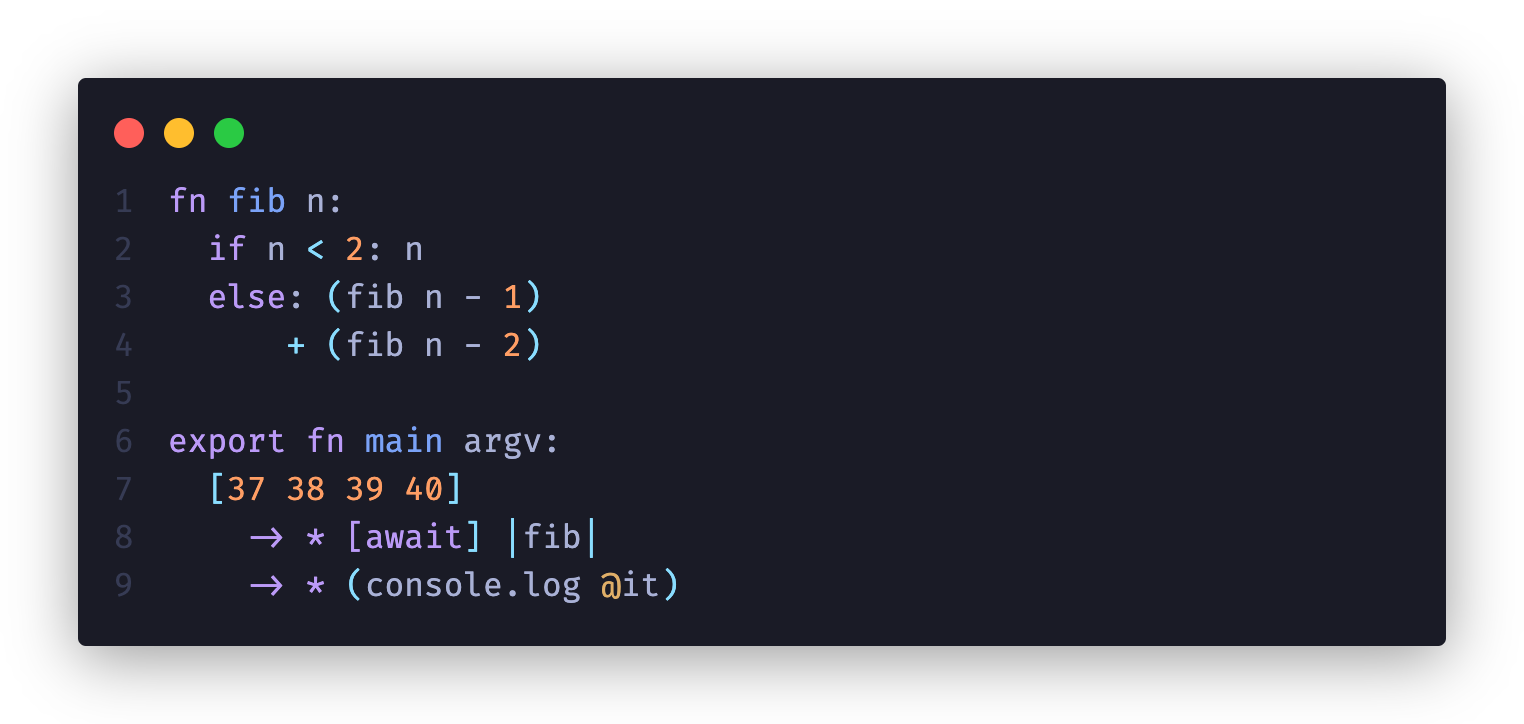Clio is looking to hire developers in Iran. If anyone is interested you can apply on our telegram group.
Clio is a pure functional lazy-evaluated programming language targeting decentralized and distributed systems. It is made to take advantage of multiple CPUs and CPU cores (parallelism) by default, to run on clusters and on the cloud easily.
Clio compiles to JavaScript. This makes Clio fast, easy to port and easy to extend. It gives Clio a free JIT compiler, a powerful VM and access to lots of existing libraries. It enables Clio to run in the browser and on servers, and anywhere JavaScript can run.
Read Clio introduction blog post on medium.
To install you'll need Node.js (latest version) and NPM. Clio is hosted on NPM, to install it simply do
npm i -g clio-langTo see a list of available clio commands and their description you can run
clio --helpClio is in active development and it's not ready for production. It is in a highly experimental state, although some stable demonstrations and test programs exist, it is not recommended to use in production.
- Clio Website
- Discourse
- Documentation
- Clio on Rosetta Code
- Quick Guide
- Web IDE
- Clio on Trello
- Clio Chat (on Telegram)
You can check the examples in examples repository or you can check Clio on Rosetta Code.
You can visit docs.clio-lang.org for a short tutorial, introduction and documentation. This documentation is a work in progress and your contributions are highly appreciated.
- Pure
- Noise-free
- Lazy evaluation
- Lazy data types
- Asynchronous by default
- Functional programming paradigm
- Pipes and flows
- Functions are micro-services
- Network-based foreign function interface
- Tensor/array indexing and programming
- Cloud/decentralized/distributed modules and functions
- Event-based flow control
For a list of what's done and what's planned you can check Clio on Trello.
- Encourage writing clean code
- Encourage writing interconnected micro-functionalities instead of big whole programs
- Make it easier to write decentralized and distributed code
- Take advantage of multi-core CPUs and multiple CPUs by default
- It should be easy to port existing code, and it should be easy to port Clio code to different platforms
- Avoid spaghetti code and callback hell


